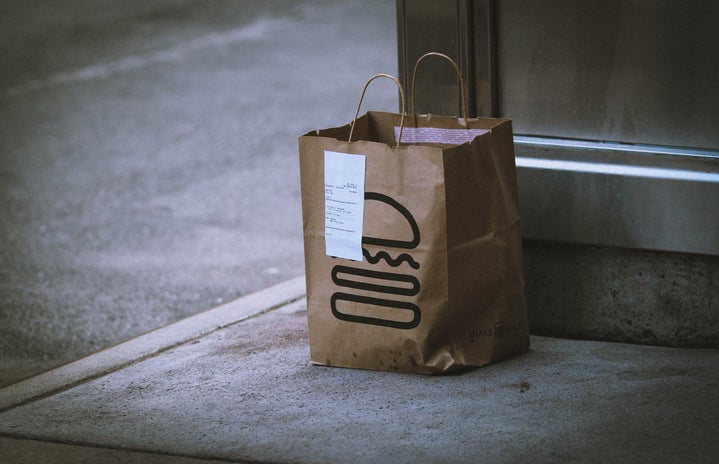Recently, I have been reconsidering how many delivery services I use. Amazon Prime, Instacart, GoPuff and DoorDash make life a lot easier for me, but I also feel like they make me a lazy consumer.
I often avoid simple trips to Target or the grocery store, which helps me get out of the apartment and get some fresh air. Additionally, delivery services are expensive, especially on a college budget. After some research, I have decided to limit the amount of services I use.
Growing up, take-out was a norm in my house — but delivery was not. One of my parents always went and picked up our food, which was a fun excursion for my siblings and I. Picking up your own food also just made more economic sense. Now that I use more delivery services, I wonder why I am consistently splurging on delivery fees and other odd costs. These fees hurt my bank account, especially when I know I can just walk down the street and get my own Chipotle.
It makes me wonder: is convenience is really worth the cost?
Next, some delivery services are completely unethical. Amazon’s poor treatment of its workers is something that is extremely public, yet it is consistently utilized for services. I try to use Amazon for finding obscure things that I most likely wouldn’t be able to find at any general store. However, I still struggle with completely eliminating it.
Amazon Prime is so easy because its shipping time is reliable and it has pretty much everything I need at my fingertips. Once again, though, it is pricey. I do not even use the other benefits, such as Prime Video or Prime Music, so is the monthly subscription worth it? It is difficult to see the benefit when I could shop for myself.
Tipping is always a problem within delivery services as well. As a college student, I am guilty of not tipping because I know I am already paying too much for the service. For example, on Uber, consumers are more inclined to tip because they experience the service they are paying for. However, on Instacart, they are less likely to tip because they are unaware of the hard work that goes into shopping for and delivering their items. Many Instacart consumers are unaware of how time-consuming this can be, and there is also little financial return for the deliverer.
As I mentioned earlier, I am guilty of only giving a five percent tip rather than the customary twenty percent, so it is important to be conscious of how your delivery impacts other people’s lives and it is necessary to be generous.
Mental health can also be impacted by delivery services. If an individual is battling a difficult time and feels like isolating, it is so easy to click a few buttons on GoPuff and get what you need. It takes away a difficult, yet fundamental concept of going outside and doing basic errands.
Although delivery services make life a lot easier, they negatively impact your wallet and your ability to provide for yourself. It is important to look into these conveniences and reevaluate what is really needed in your day-to-day life.


